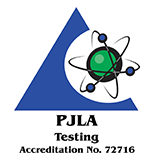KAVA TESTING CAPABILITIES
| Analyte | Sample Required | Price |
| Metals via ICP/MS | 10 g | $90 |
| As, Cd, Hg, Pb | ||
| Potency via HPLC | $135 | |
| Desmethoxyyangonin, Dihydrokawain, Dihydromethysticin, Kawain, Methysticin, Yangoin | ||
| Pathogens via PCR | 25 g | $50 |
| Salmonella spp. Shiga Toxin Producing E. coli | ||
| Indicator Organisms via Petrifilm™ | 25 g | $50 |
| Aerobic Plate Count, Coliforms & E. coli, Staphylococcus aureus, Yeast & Mold | ||
| Totals: | 60 g | $325 |
| Additional Offerings | ||
| Flavokawain A & B + $65 (+3 g additional sample) | ||
| Noble/Tudei Confirmation + $40 | ||
| Pesticides & Mycotoxins +$165 each or $225 for both | ||
| Residual Solvents + $30 | ||
Notes:
- Turnaround time 5 business days.
- Ensure representative sample portion is submitted.
- PCR detects 1 viable (live) cell in sample tested, yielding a Negative or Positive result
- Shiga toxin-producing E. coli (STEC) includes the following serogroups: O103, O11, O121, O145, O26, O45, O157:H7
The testing procedures documented above include microbiological and chemical safety parameters as well as potency/quality.
The pricing and amount of sample required per test is provided.
Potency can be tested on the raw plant material or extracts/teas. Six kavalactones are extracted from the product using alcohol and analyzed by high-performance liquid chromatography. In addition to potency, the plant material can be classified as Tudei or Noble kava using a colorimeter.
The indicator organisms are extracted from product using phosphate buffer and quantified on Petrifilm™. These organisms are used to give an idea on the cleanliness of the product:
- Aerobic Plate Count (APC) – This is a general screen that allows for an at-a-glance determination of the total bacterial load.
- Coliforms & Escherichia coli (CEC) – This is a screen for fecal bacteria and generic coli which can be indicative of product handling and cleanliness.
- Staphylococcus aureus (Staph) – This is a specific test for the bacteria that causes staph infections.
- Yeast & Mold (Y&M) – This a screen for all yeast/mold species which can be an indicator of the degree of spoilage. These species can also greatly influence the sensory properties of a product.
The pathogens E. coli (STEC) and Salmonella are enriched in product using organism specific broths. These are then incubated and detected using polymerase chain reaction (PCR). These organisms are dangerous bacteria that can cause extreme sickness and is sometimes fatal. It is recommended that any product that can harbor these pathogens be tested for their absence. If a product can be linked to an outbreak of these bacteria, it can result in a costly recall and/or legal ramifications.
Heavy metals are analyzed using inductively coupled plasma mass spectrometry (ICP-MS) The commonly tested metals are arsenic, cadmium, lead, and mercury. Nearly all botanical products will contain significant concentrations of heavy metals caused by uptake from soil or industrial processes. In products like kava which are commonly consumed as teas, it is recommended that the metals be analyzed on an as served basis. This will prevent overestimation of these analytes. If this test is requested, brewing instructions would be required.
Additional testing parameters are available upon request, including, but not limited to: Pesticides, mycotoxins, and flavokawains

